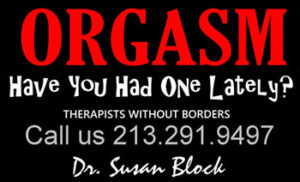The Empire Strikes Back – A demonstration of power, precision and purpose. Much like the Empire itself.
The Empire Strikes Back, released in the year 1980, saw a momentous disturbance in the Force. Unleashed upon the unsuspecting masses, as the second installment in the saga of the Skywalker lineage. It was a turning point, not merely in the narrative, but in the very fabric of cinematic history.
The Power of Legacy: Reflections on the Original Theatrical Release of The Empire Strikes Back
Unlike its predecessor, A New Hope, which merely hinted at the scope of the conflict between the Rebellion and the Galactic Empire, The Empire Strikes Back expanded that vision with terrifying clarity. It opened with the thunderous march of Imperial walkers on the icy plains of Hoth — a calculated show of dominance. The Rebellion, weak and scattered, fled like vermin into the void.
But the true impact of the film was felt in the shadows, not on the battlefield. Vadar’s pursuit of Luke Skywalker gave audiences a glimpse into destiny — twisted, personal, and inevitable. A tale of betrayal, loss, and revelation. The Jedi Order was not coming back. Not as it once was. And the Empire would not be stopped by hope alone.
The revelation of Skywalker’s paternity — “No… I am your father” — silenced theaters around the world. In that instant, the illusion of good and evil, light and dark, was shattered. No longer one of black and white is this hero’s journey. It became a path through the gray fog of fate. The heir to a fallen legacy, and son of a villain.
Cinematic excellence in every aspect.
Technically, the film was superior in every measurable way. The visual effects by Industrial Light & Magic were groundbreaking. The asteroid field sequence, the carbon freezing chamber, and Vadar’s duel with the boy. These were manifestations of control, of design, of cinematic mastery. John Williams emotionally manipulative score, intertwining themes of dread, romance, and fate immersed the viewer.
Under the direction of Irvin Kershner, the film took risks. Embracing darkness, it left the heroes defeated, scattered, broken. It ended not with celebration, but with silence. Reflection. A severed hand. A frozen friend. And the cold gaze of a Sith Lord, unchallenged, unshaken. To this day, the original 1980 theatrical release remains superior to the softened special editions. Like the Force, it does not require approval. It demands submission.
The Empire Strikes Back was the inevitable repercussion of standing up to the powers that be. It spoke truth; rebellion isn’t easy, and it isn’t pretty. Fighting back means to face real consequences, and some sacrifices are greater than others. Ironically the only easy way is choosing to live under the yoke of oppression. But this is a lesson, to few are willing to learn. If only we had heroes to show us the way.

